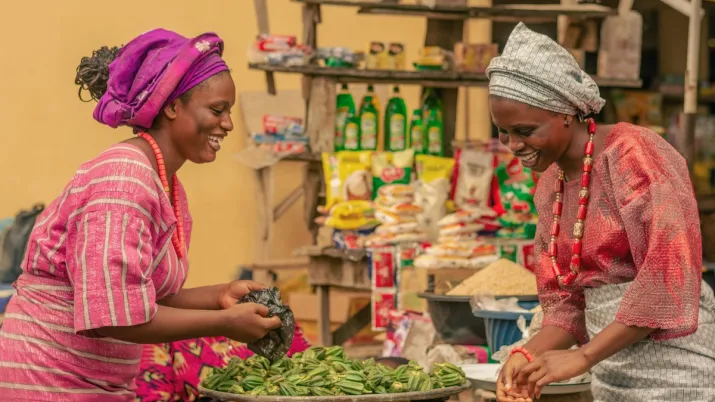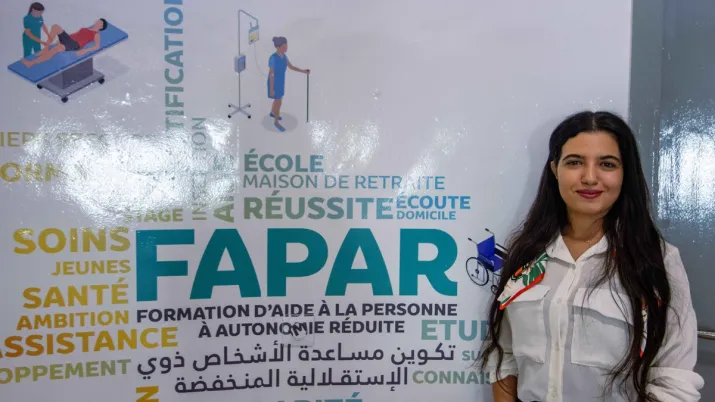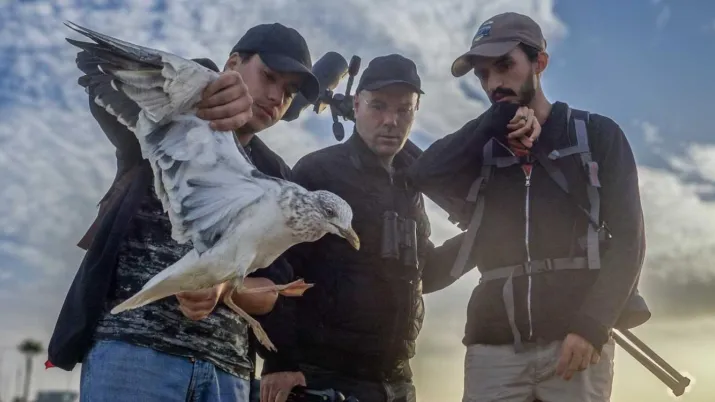Share the page
Morocco: helping women survivors of violence reclaim their dignity
Published on
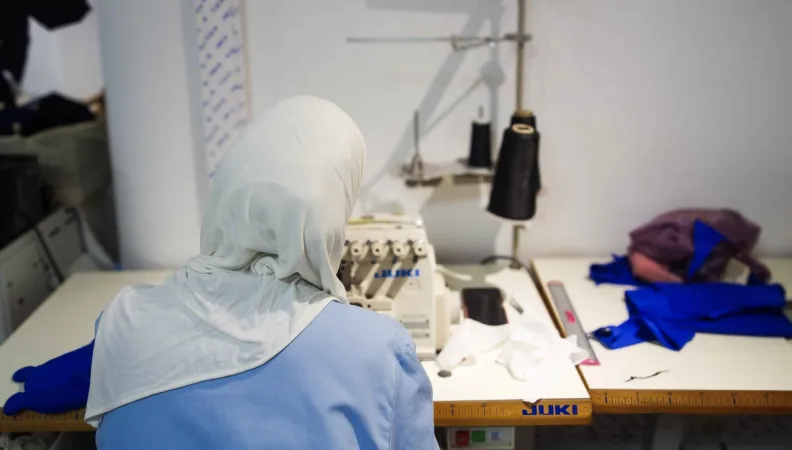
For over 20 years, the National Institution for Solidarity with Women in Distress (INSAF) has been working in Casablanca to uphold the dignity of women and children. The organization welcomes, supports, and trains women who have experienced violence or extreme hardship, giving them the means to rebuild their lives.
"Living in a society where every woman and every child has their rights respected – this has been the dream of the National Institution for Solidarity with Women in Distress [INSAF] for more than 20 years."
This is how Meriem Othmani, president of INSAF in Morocco, defines the organization's mission.
INSAF: supporting women’s rights and autonomy
Founded in 1999 in Casablanca, INSAF operates three reception centers. At its headquarters on Rue Hay Adil, we meet Hasnae Ait Esadik, project manager since 2017.
Raised by her mother, grandmother, and sister, Hasnae became aware early on of the lack of social, legal, and economic autonomy faced by many women. After working with the emergency social service Samu social, she joined INSAF first as a social worker in charge of intake and orientation. She later managed a shelter, followed by training and employment support programs for women beneficiaries. Today, she oversees their professional integration.
"INSAF is like a multidisciplinary university where we learn something every day," she says.
The Karama project: reclaiming dignity
Led by the French organization Batik International, the Karama project works to improve the social and economic inclusion of women survivors of violence in Morocco, Tunisia, Algeria, and Egypt. In Morocco, Batik partners with two organizations to deliver the project: the Federation of Women's Rights Leagues (FLDF) in Rabat and INSAF in Casablanca.
Launched in October 2023 in Hay Hassani, Karama offers legal, administrative, and psychological support, as well as economic and financial empowerment programs. These services are urgently needed in this neighborhood, where violence against women is widespread and where many single mothers live.
In coordination with the public social service Entraide nationale, the program provides reception services and a limited number of beds for longer-term shelter, for up to six months. In cases of acute social or psychological distress, psychiatric support is made available through partner organizations.
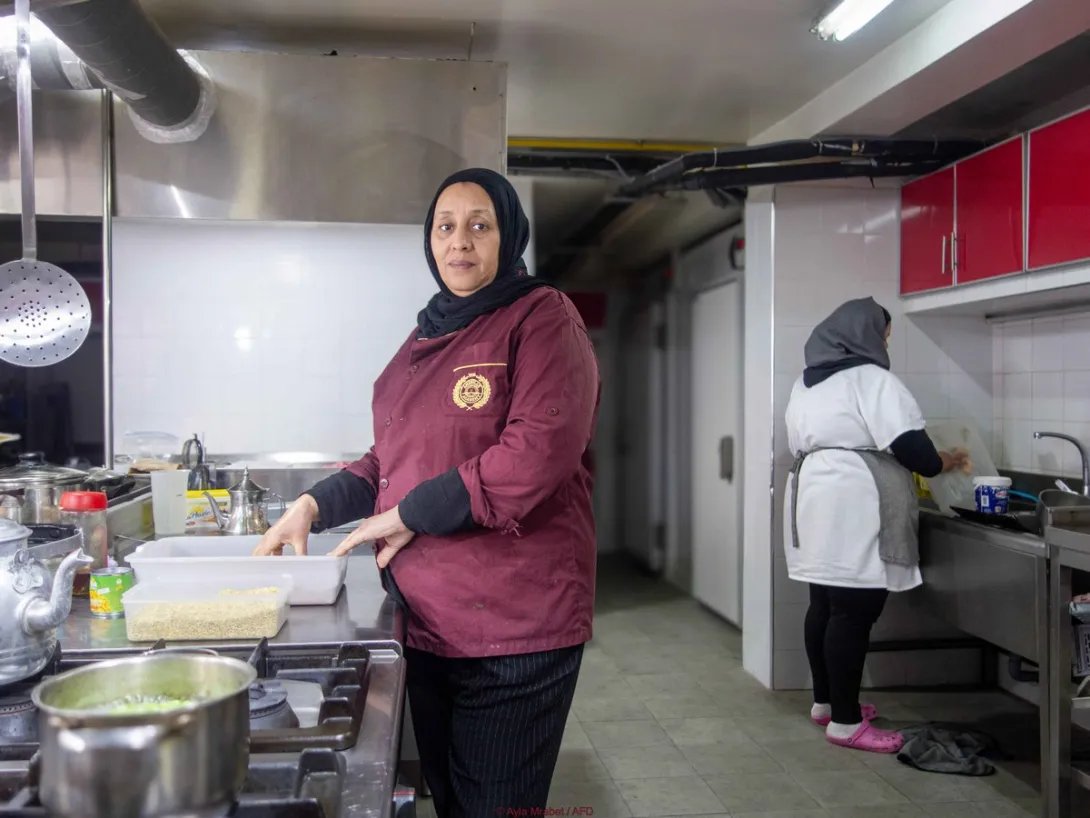
Training is offered in hairdressing, beauty care, cooking, and sewing, allowing participants to quickly acquire professional skills.
"We offer women tools to help them face reality, fight, and move forward," explains Meriem Othmani.
Some have experienced domestic violence; others face issues related to divorce, paternity recognition, or access to identity documents, particularly when they have been rejected by their families.
In theory, access to a family record book is possible for mothers, but in practice it remains a challenge. INSAF provides legal support through its social worker and a network of lawyers, particularly in cases of abuse of domestic workers, sexual assault, and related situations.
Advocating for a different perspective
Women are also frequently confronted with judgment from both families and institutions. INSAF plays a key role in mediating with families or partners to help lift the weight of social stigma.
The organization itself is not immune to criticism, and its work is not always well accepted in the community.
"To change mindsets, we have to act on multiple levels, because there are both ideological and religious barriers," says Meriem Othmani. These are made worse, she adds, "by poverty and social violence."
To address these systemic issues, INSAF has submitted recommendations as part of the ongoing reform process of the Family Code, the Moudawana. These proposals highlight several urgent priorities for single mothers and children born outside of marriage, including:
- Legal and administrative recognition of guardianship, so that single mothers are fully recognized as heads of household
- Recognition of paternity through DNA testing
- The right to remarry without losing custody of their children
Through this advocacy, INSAF is working toward a future where every woman and every child can see their rights respected, without discrimination or exclusion.
Read also
Feminist foreign policy: What tangible progress has been made on the ground?
Published on October 22, 2025
Khadija Bourass: boosting biodiversity in Morocco through bird conservation
Published on June 2, 2025

